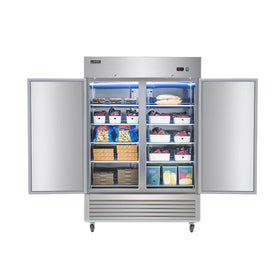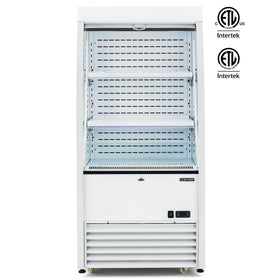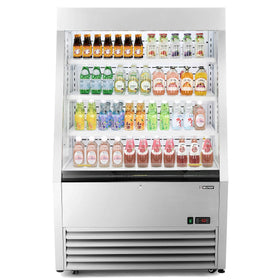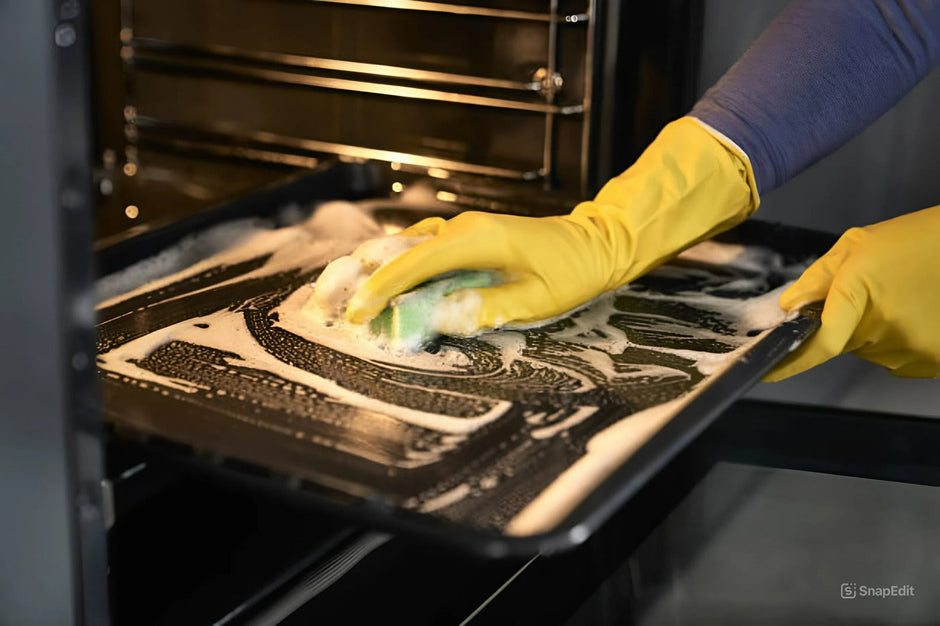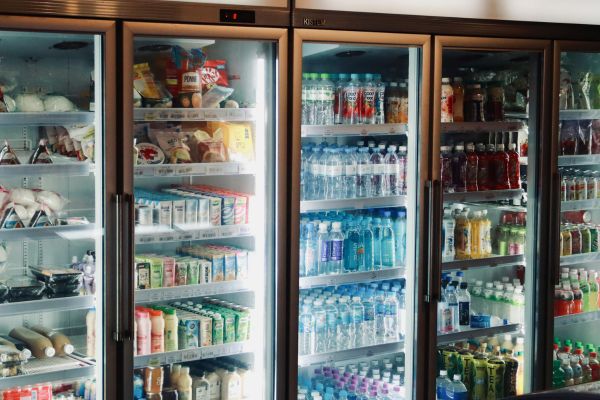To successfully start a catering business, begin by conducting proper and adequate market research, then find out which catering licenses and insurance policies are required, know how to price your services, and learn the strategies to market your business online.
All these processes may seem quite complicated, but everything becomes easy once you have a guide to point you in the right direction.
The profit margin is high, and even if you don’t have a high start-up capital, it is quite possible to start from home and then expand as it grows.
We will give you some guidelines on starting your catering business.
Here's what you will learn:
- Practical tips on how to start your catering business
- What to focus on during marketing research
- What licenses and insurance policies you need
- How to choose the right catering services
- How to price your services
- Some steps that are often overlooked when starting a catering service
-
How to get them at an affordable price.
1. Begin with Market Research
The first step in starting a catering business is market research. Market research allows you to identify what customers need in catering services and how you might best provide them.
When conducting marketing research for a catering business, follow these steps:
i. Research Local Demand
- Identify underserved catering niches in your area, and see how you could fill that market gap.
- Check competitors’ menus, pricing, and client reviews to see if you can provide better services, lower prices, or overall better quality.
ii. Identify Your Target Market
If you find a market gap, then your target market becomes those customers whom you perceive to be underserved.
If your market research indicates an unmet demand for corporate catering services, for example, your target audience should be offices and companies that may require office lunches and catering services for meetings and conferences.
iii. Focus on Your Area of Expertise
A good strategy for building an identity and facilitating efficiency is to choose one catering service and specialize in it.
Here are some catering services to choose from:
- Corporate catering: Office lunches, meetings, conferences.
- Wedding catering: High-end, formal dining with customized menus
- Private Event Catering: Birthdays, anniversaries, family gatherings.
- Buffet-Style Catering: Self-service for large events.
- Meal Prep & Delivery: Weekly meal plans for health-conscious clients
iv. Create a Business Plan
A business plan for a catering business should outline the services you provide, the prices you intend to charge, the marketing strategies you intend to adopt, and financial projections for the future.
- Outline the services you will provide. It is best to specialize in the catering services in which you have the best skill or the most experience (see notes at the end of the blog).
- Price your catering services appropriately. Catering pricing is based on food cost, labor, overhead, and profit margin (more details at the end of the blog)
2. Get the Appropriate Licenses and Insurance Cover
Most states require food service licenses and insurance for catering businesses. The requirements typically vary from state to state, but here are some licenses and permits that are generally required:
- A Business License. Register your business with the local/state government for a business license.
- Food Service Permit. Obtain a permit to handle food from the health department in your state.
- Catering License. Some states require a separate catering permit.
- Health & Safety Certifications. Get certified in food handling and hygiene (ServSafe or equivalent).
- Alcohol License. If you intend to serve alcohol, you need to apply for a liquor license.
How to Apply for a Catering License
If your state requires a catering license, visit your local Health Department to check the specific requirements for obtaining one.
- You may need to complete a food safety training program (offered by organizations like the National Restaurant Association).
- Schedule a health inspection of your kitchen facility.
- There is no standard amount to pay for a catering license. The licensing fees vary from state to state.
What Kind of Insurance Do You Need for a Catering Business?
Insurance requirements for catering businesses (much like many other businesses) vary from state to state.
However, Catering businesses generally need the following kinds of insurance:
- General Liability Insurance. Covers accidents, foodborne illnesses, or property damage.
- Commercial Property Insurance. Protects kitchen equipment and inventory.
- Workers’ Compensation Insurance (if you hire employees). Covers injuries on your employees.
- Liquor Liability Insurance. Required if you plan to serve alcohol.
How to Get Insurance for Your Catering Business
- Contact business insurance providers like Hiscox, The Hartford, or Progressive.
- Get quotes and compare coverage options.
- Choose a policy that aligns with your budget and risk exposure.
3. Get the Necessary Kitchen & Equipment
You might need to rent a commercial kitchen first. In some states, the law requires food to be prepared only in a licensed kitchen.
In that case, you need to rent a commercial kitchen space, then think of what commercial kitchen equipment you might need.
A new catering business needs (at least) the essential cooking equipment, storage equipment, and transportation equipment (to move the food around).
Essential Kitchen Equipment
- Cooking Equipment – Stoves, ovens, grills, and deep fryers.
- Preparation Tools – Cutting boards, knives, and food processors.
- Serving Equipment – Chafing dishes, serving trays, and utensils.
Storage Equipment
- Refrigerators (ie. commercial refrigerators)
- Freezers (worktop freezes, deep freezers, etc)
- Dry storage shelves.
Transportation Equipment
- Insulated Food Carriers
- Food warmers
Top Tip For Buying Commercial Kitchen Equipment
When buying commercial kitchen equipment for your catering service (or any food business), choose a single supplier and buy everything from them. Here's why:
- You benefit from amazing bulk discounts
- You ensure consistent quality across all the equipment
- You establish a good relationship with a big player in the business
Wilprep's Kitchen: A Supplier You Can Trust
Wilprep’s Kitchen is a major dealer in commercial kitchen equipment with a long history of supporting bakeries and catering services all over the nation.
Here is a list of affordable catering service equipment you could get from Wilprep without breaking the bank:
Affordable Cooking, Storage, and Transport Equipment From Wilprep's Kitchen
- Commercial gas ranges: Gas Ranges with multiple burners, from 12-inch to 53-inch models.
- Commercial Convection Ovens: from countertop convection ovens to double-deck electric commercial ovens.
- Commercial griddles, including electric griddles and gas griddles.
- Commercial deep fryers: gas deep fryers and electric deep fryers
- Commercial refrigerators and freezers: display refrigerators, reach-in refrigerators, chef bases, and open-air merchandisers.
- Commercial Food warmers: Electric countertop food warmers with pans/ covers
- Steam Tables: From 2-well steam tables to 5-well steam tables
Affordable Preparation Tools from Kyoku Knives
For preparation tools, you can refer to Kyoku knives for affordable, high-quality, non-toxic Cutting boards, Japanese kitchen knives, and other knife accessories for smooth cutting, cooking, and serving.
4. Do Smart Marketing and Branding
To market and promote your catering business, create an online presence with an appropriate market and branding strategy. You can adopt a combination of online and offline marketing, as well as offering promotions and discounts.
How to Market Your Catering Services Online
- Create a professional website. Showcase your menu, pricing, and testimonials.
- SEO & Google My Business. Optimize for local searches (e.g., “best wedding catering near me”).
- Social Media Marketing. Post photos/videos of past events on Instagram & Facebook.
How to Market Your Catering Services Offline
- Network with event planners: They can refer you to clients.
- Partner with venues. Get on preferred vendor lists.
- Attend food festivals and trade shows, and offer samples to attract clients.
Offer Promotions & Discounts
- Set up a referral program to reward clients who bring new customers.
- Offer first-time customers a discount to try your service.
6. How to Manage a Catering Business (3 Major Tips)
Streamline Operations
- Use event management software (e.g., HoneyBook, Caterease) for bookings.
- Implement inventory tracking to help prevent food waste.
Build Strong Vendor Relationships
- Work with local food suppliers for fresh ingredients.
- Maintain backup suppliers for emergencies.
Ensure Consistency in Food & Service
- Create standardized recipes to maintain quality.
- Train staff on presentation and food safety.
Final Thoughts
Starting a catering business takes careful planning, but with the right strategy, it can be a profitable and fulfilling venture.
Decide on your services based on market demand, price your offerings smartly, get the necessary permits and insurance, and invest in quality equipment. Marketing and networking will be key to growing your business.
NOTES
Choosing the right catering service
To survive long term in the catering business, specialize in the catering services in which you have the best skill or experience.
- If you have experience in fine dining, consider wedding catering services.
- If you prefer high-volume orders, choose between buffet and corporate catering services.
- If you would like to focus on smaller groups with much flexibility in food choices, consider private catering.
- If you prefer rigidity and consistency, consider corporate catering.
- If you prefer a more intimate one-on-one style catering business, consider meal prep and delivery catering.
How to Price and Offer Your Catering Services
A lot of your success or failure in the catering business depends on how you price your catering services. If your services are too costly, potential customers will find cheaper alternatives, and if they are too cheap, you might not be able to cover costs and turn a profit.
Catering pricing is based on food cost, labor, overhead, and profit margin. Follow this formula:
Total cost=(Food cost+Labor Cost+Overload)+Profit Margin
- Food Cost (30-35% of the price) – Calculate the cost of ingredients per dish.
- Labor Cost (20-25%) – Include chefs, servers, and delivery staff.
- Overhead (10-15%) – Rent, utilities, licenses, marketing.
- Profit Margin (20-30%) – Your earnings after covering expenses.
Pricing Models for Catering Services.
- Per Person Pricing: Charge per guest (e.g., $25 per person for a plated meal).
- Tiered Pricing: Offer different packages (Basic, Premium, Deluxe).
- Flat Rate Packages: Fixed price for a specific event size (e.g., $1,500 for a 50-person party).
How to Offer Your Catering Services
Provide Pre-set Menus vs. Custom Menus
- Pre-set Menus are efficient and cost-effective.
- Custom Menus cater to specific client preferences but require more planning.
Provide Favorable Payment Terms
- Require a deposit (25-50%) upfront to secure bookings.
Cancellation Policy
- Establish a clear refund policy for cancellations.







